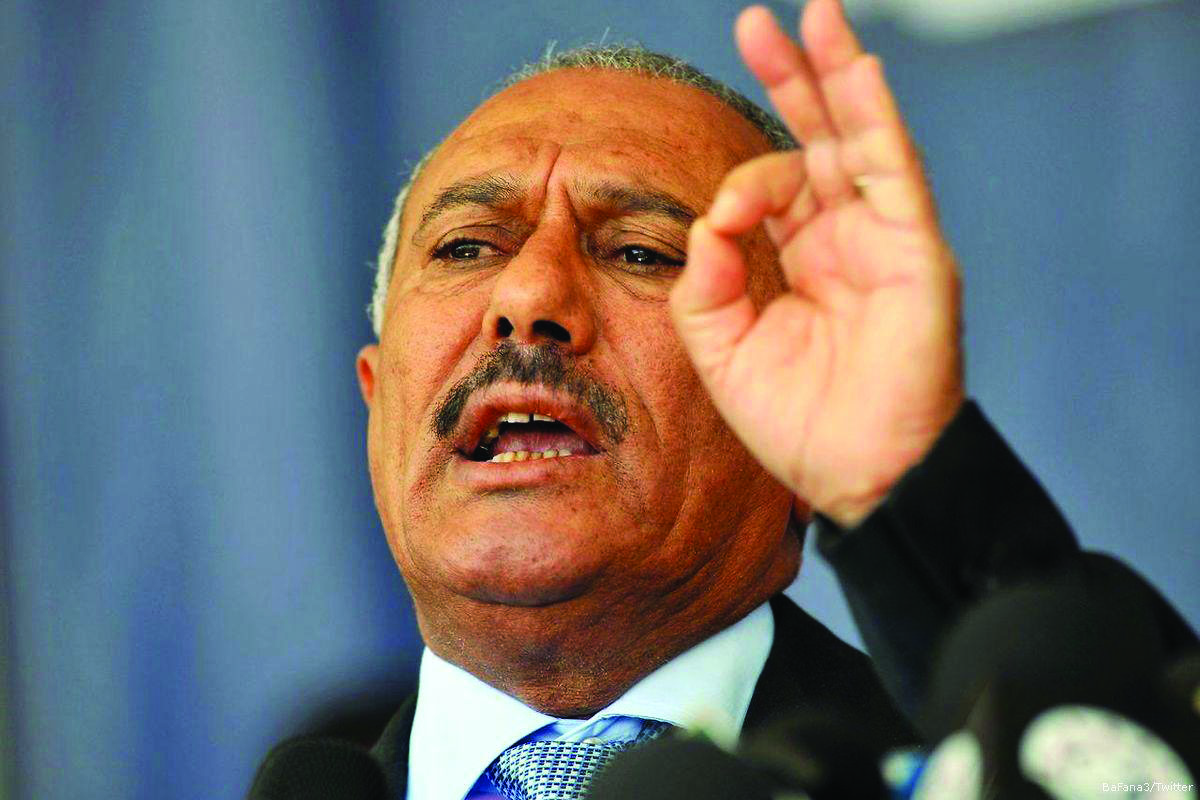Ali Abdullah Saleh, the former president and long-term dictator of Yemen, was killed by his erstwhile allies, in the Houthi movement, on Monday. This event plunges Yemen, already war torn and suffering from near famine conditions, into even greater turmoil. Saleh had been the president of Yemen for 33 years before he stepped down in a Saudi brokered agreement at the height of the Arab Spring. The president had described governing Yemen as “dancing on the heads of snakes” and he was famous for callously playing tribal, religious, and political groups off one another.
After stepping down in the wake of 2011 protests, Saleh remained a key player in Yemeni politics, running his General People’s Congress (GPC) party and maintaining close links with the military. In 2015, he joined with the Shia Houthi movement in an effort to overthrow the government of Abdrabbuh Mansur Hadi, his former deputy. The Houthi’s are a religious revivalist group whose leader was originally killed by Saleh himself but in 2015 they saw an opportunity to capitalize on government weaknesses in order to take control of Yemen’s capital, Sanaa. With the assistance of Saleh and his GPC party, the Houthi’s managed to move from their northern strongholds and assert control over much of northwest Yemen, where the majority of the population lives. The internationally recognized government of Hadi managed to survive this first onslaught, escaping to the southern coastal city of Aden, where they gathered support. In March of 2015, Saudi Arabia and a coalition of Arab countries joined the Hadi’s forces and began a massive air campaign to deter Houthi gains. Meanwhile Iran has opted to back the Houthi’s, who share a devotion to Shia Islam. The engagement of these two outside actors has turned Yemen into a proxy war and cost thousands of Yemeni civilians their lives.
Since 2015, the Saudi coalition has been successful in halting Houthi advances and Hadi’s forces maintain control of Aden as well as much of Yemen’s sparsely populated south and east. With this stalemate lasting for years, it appears that Saleh has decided to switch sides in an attempt to once again gain control of the country. Earlier last week, he announced his willingness to work with the Saudis even as fighting broke out between Saleh’s supporters and Houthi fighters. Some analysts suggest that Saleh has come to an understanding with Saudi Arabia and its coalition under which Saleh or his son could have returned to power. However, after Monday’s events, it appears he over-estimated his position and it now appears that the Houthi’s are in undisputed control over Sanaa and northeast Yemen.
Scholars posit that without Saleh, there is no figure in Yemeni politics left with the ability to potentially unite the country. It is now likely that the war will dissolve into a long fight for control that will only exacerbate the ongoing humanitarian crisis. Not only do millions of Yemenis face near starvation, but now the country is also in the midst of the most devastating cholera outbreak in nearly a century. The United Nations expects the outbreak to reach over a million victims by the end of this year. Ironically, the death of this cruel dictator may only extend the suffering of millions of Yemeni civilians in what the United Nations considers the world’s worst humanitarian crisis, a forgotten war that is ravaging populations while garnering little media coverage.



